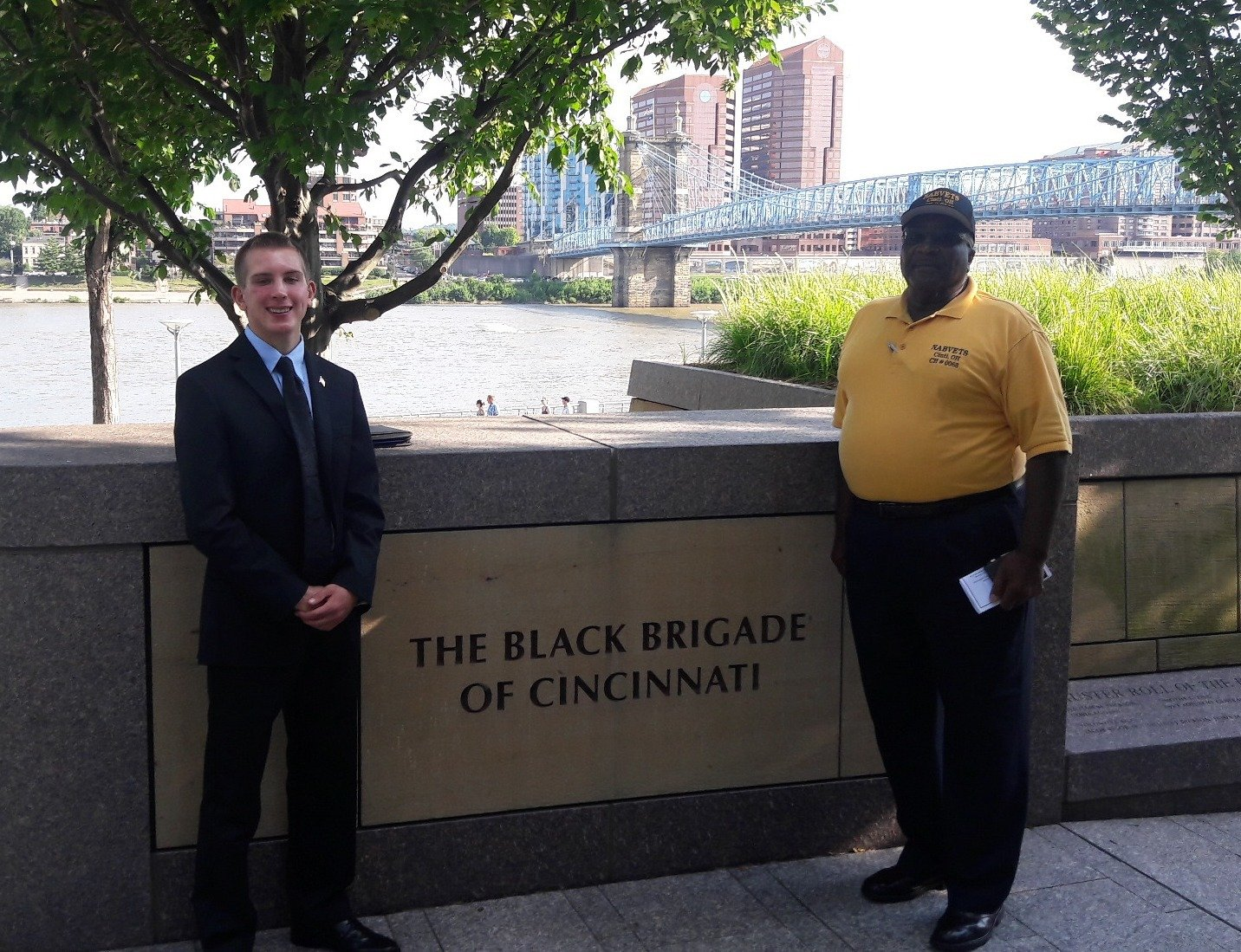On the left is My GI founder and President Emeritus, Connor Thomas; a member of the National Association of Black Veterans and on the right is former Marine Captain and State of Ohio Commander for the National Association of Black Veterans, Mr. Urulee Watson. If you look for one, you'll likely find the other. These are two gentlemen who work and learn from each other and share the same value system.
In August and September 1862, Confederate generals Edmund Kirby Smith and Braxton Bragg invaded Kentucky in order to hold the Bluegrass State for the Confederacy. After rebel troops defeated Union soldiers at the Battle of Richmond, Kentucky, and captured the state capital at Frankfort, Ohio River cities prepared to meet the Confederate threat.
In order to defend Cincinnati, the Union army established a string of earthwork fortifications in northern Kentucky. One of these forts was named Fort Wright, in honor of General Horatio G. Wright, the commander of the Department of the Ohio. Due to a lack of local white manpower, and after martial law was imposed by Cincinnati mayor George Hatch on September 2, the city police impressed all available African American men to build defenses in northern Kentucky. This group of conscripted laborers became known as the “Black Brigade.”
General Lew Wallace, in command of the Cincinnati defenses, placed Cincinnati judge William Martin Dickson in charge of the African American workers. Dickson, worried about how the men had been treated, dismissed them to their families if they promised to return to work the next day. The following morning, the 400 initial workers returned and were joined by 300 additional volunteers.
The Black Brigade labored on the earthwork fortifications and military roads for more than two weeks. Their commanders and army engineers recognized their efficiency. Upon completing their work, Judge Dickson noted, “You have labored faithfully; you have made miles of military roads, miles of rifle pits, felled hundreds of acres of the largest and loftiest forest trees, built magazines and forts. The hills across yonder river will be a perpetual monument of your labors... Go to your homes with the consciousness of having performed your duty - of deserving, if you do not receive, the protection of the law, and bearing with you the gratitude and respect of all honorable men.”
During this time, African Americans were not allowed to serve in the Union army as soldiers. However, with the enactment of the Emancipation Proclamation on January 1, 1863, blacks enlisted in the "United States Colored Troops" in Ohio and other northern states. One soldier who had performed labor in the Black Brigade also won renown while fighting in the 5th United States Colored Infantry. Private Powhatan Beaty won the Congressional Medal of Honor for his bravery in combat at the Battle of Chaffin's Farm (also known as New Market Heights) outside of Richmond, Virginia, on September 29, 1864.









